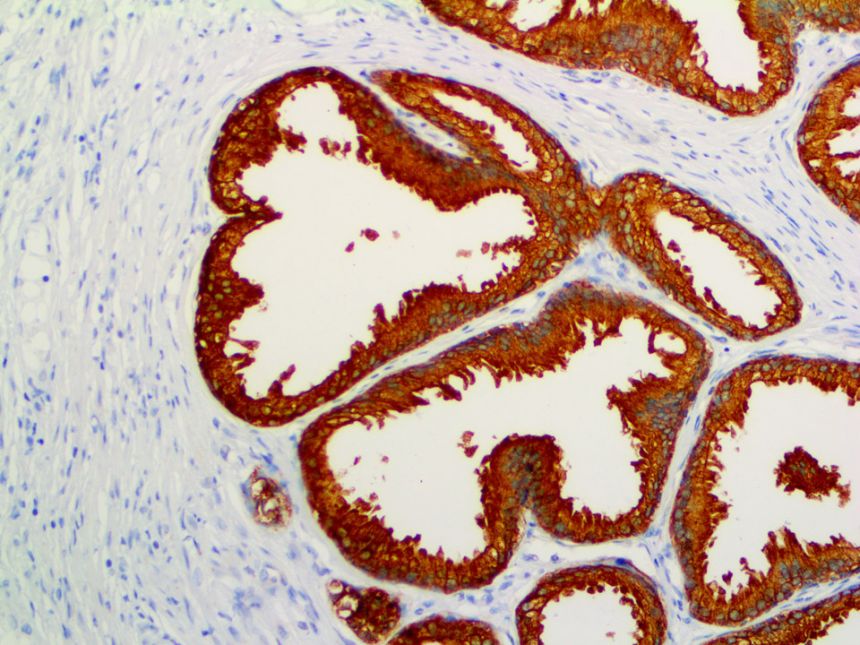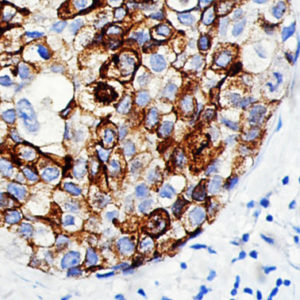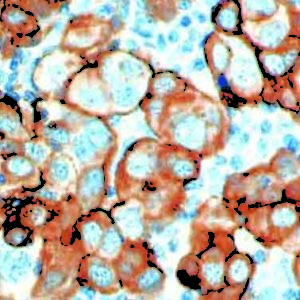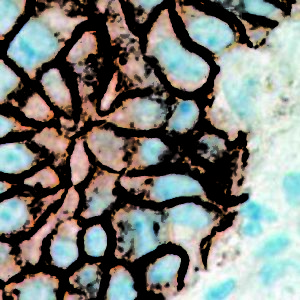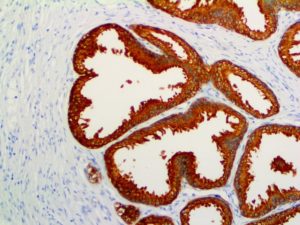
IHC of Prostate-Specific Antigen on an FFPE Prostatic Adenocarcinoma Tissue
| Intended Use | For In Vitro Diagnostic Use | |||||||||||||||||||||||||||||||||||
| Summary and Explanation | Prostate-specific antigen (PSA) is a protein produced by the cells of the prostate gland. PSA is present in small quantities in the serum of normal men, and is often elevated in the presence of prostate cancer and in other prostate disorders. Higher than normal levels of PSA are associated with both localized and metastatic prostate cancer. The PSA antibody recognizes primary and metastatic prostatic neoplasms but not tumors of nonprostatic origin. The antigen is a 33-34 kDa glycoprotein that is restricted to cells of prostatic origin. An immunohistochemical study showed more than 95% of prostatic carcinomas stained with PSA. PSA is demonstrable in the cytoplasm of acinar and ductal cells of normal or malignant prostate tissue. | |||||||||||||||||||||||||||||||||||
| Antibody Type | Rabbit Monoclonal | Clone | RBT-PSA | |||||||||||||||||||||||||||||||||
| Isotype | IgG | Reactivity | Paraffin, Frozen | |||||||||||||||||||||||||||||||||
| Localization | Cytoplasmic | Control | Prostate, Prostatic Adenocarcinoma | |||||||||||||||||||||||||||||||||
| Presentation | PSA is a rabbit monoclonal antibody derived from cell culture supernatant that is concentrated, dialyzed, filter sterilized and diluted in buffer pH 7.5, containing BSA and sodium azide as a preservative. | |||||||||||||||||||||||||||||||||||
| Availability |
| |||||||||||||||||||||||||||||||||||
| Note: For concentrated antibodies, please centrifuge prior to use to ensure recovery of all product. | ||||||||||||||||||||||||||||||||||||
